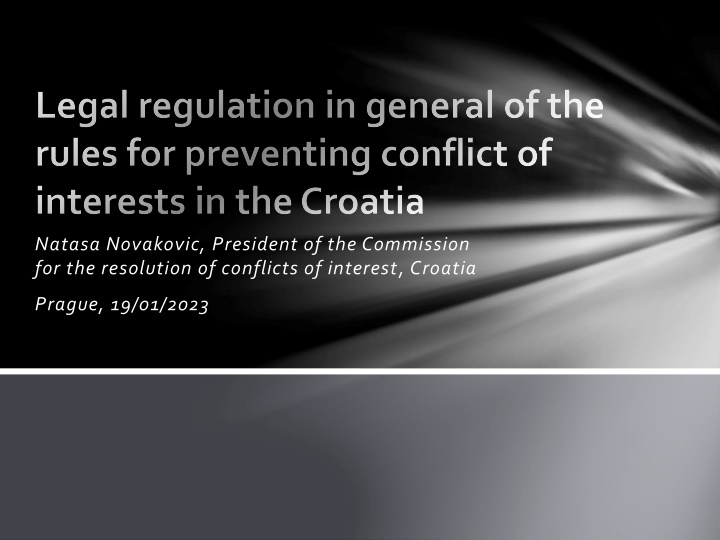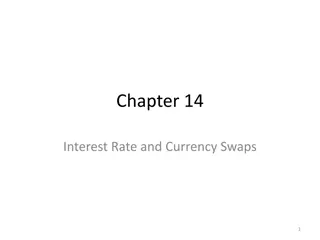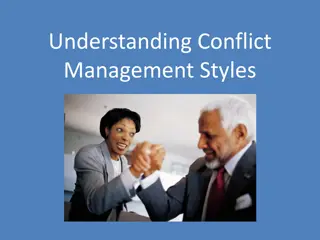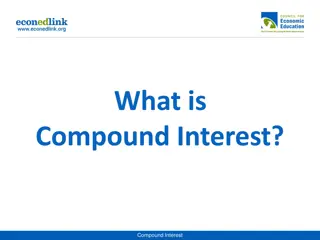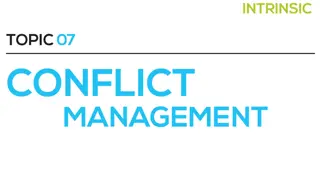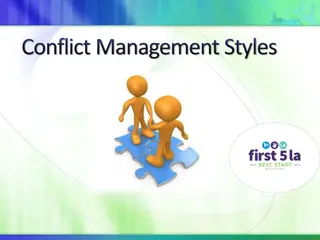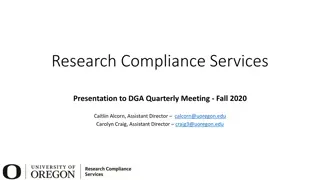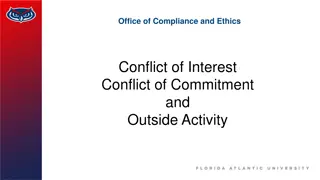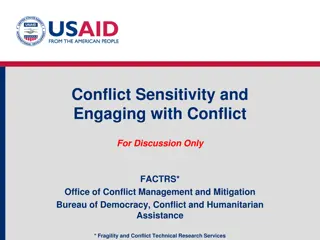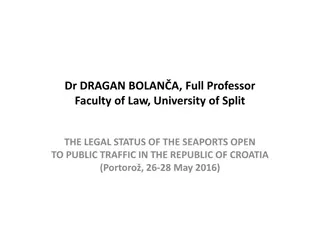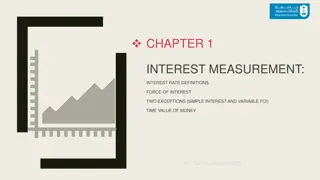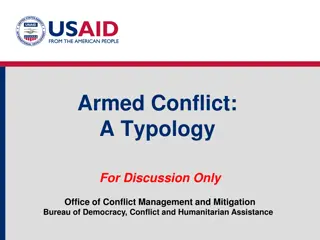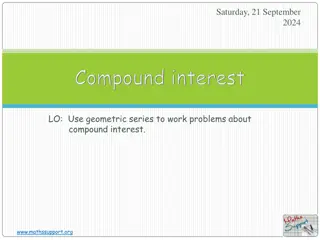Conflict of Interest Regulations in Croatia
The regulations in Croatia aim to prevent conflicts of interest among state and local officials. The Commission for the resolution of conflicts of interest oversees asset declarations, imposes sanctions, and provides guidance to officials. Private interests must not undermine public duties to maintain impartiality.
Download Presentation

Please find below an Image/Link to download the presentation.
The content on the website is provided AS IS for your information and personal use only. It may not be sold, licensed, or shared on other websites without obtaining consent from the author.If you encounter any issues during the download, it is possible that the publisher has removed the file from their server.
You are allowed to download the files provided on this website for personal or commercial use, subject to the condition that they are used lawfully. All files are the property of their respective owners.
The content on the website is provided AS IS for your information and personal use only. It may not be sold, licensed, or shared on other websites without obtaining consent from the author.
E N D
Presentation Transcript
Legal regulation in general of the rules for preventing conflict of interests in theCroatia Natasa Novakovic, President of the Commission for the resolution of conflicts of interest, Croatia Prague, 19/01/2023
What will we talk about? A little bit about us Conflict of interest Pre and post employment restrictions Other measures to avoid CoI Asset declaration
Few words about us The Commission five members (four members + President) elected by the Croatian Parliament mandate of five years 1st assembly : February 2013 2018 2nd assembly: February 2018 present Office of the Commission professional, administrative, and technical staff
Competence of the Commission rendering decisions and imposing sanctions giving opinions collecting and data check of public officials assets declaration giving instructions and guidelines educational activities aimed at public officials co-operation - international cooperation and cooperation with other bodies
Who are obliged entity State Officials => elected by the citizens / appointed by the Parliament or theGovernment (the President of the Republic, the Prime Minister, Ministers, Assistants of Ministers, Representatives in theCroatian Parliament etc.) LocalOfficials => elected by the citizens (County Prefects, Mayors, Heads of Municipalities and their deputies) New Law !! more than 1200 new officials, mostly local level
Conflict of interest When exercising a public duty, obliged entities shall not put their private interest before the public interest. potential vs. real conflict of interest A conflict of interest exists when the private interests of the obliged entity are in conflict with the public interest, and especially when: private interest of the obliged entity may affect their impartiality in performing public duty private interest of the obliged entity has influenced or can reasonably be considered to have influenced their impartiality in performing public duty. Private interest includes property and non-property benefits of the obliged persons and related persons.
Actions to be taken to avoid COI Avoidance/Delegation: giving up a role to someone else (for example to deputy) Disclosure/Declaration: if a Conflict of Interest is known to all parties involved through disclosure of it to them, this may allow the relationship to go ahead (for example, making it known that a Relative is applying for a job) Stepping back/Exemption: it may be appropriate for someone subject to a Conflict of Interest not to become involved in a decision that may be affected by the Conflict of Interest. For example, where a relative of an mayor applies for a job in the same city, arrangements could be made to ensure the mayor does not become involved in, or would not be in a position to influence any decision whether to hire the relative or not.
Pre-employment restrictions The obliged entity shall not make decisions, i.e. participate in the adoption of decisions that affect their own business interest or the business interest a) of persons related to them, b) of the employer with whom they were employed in the last two years before taking office Related persons: Family member of the obliged entity" is a spouse or extramarital partner of the obliged entity, formal and informal life partner, their blood relatives in the vertical line, brothers and sisters of the obliged entity and the adoptive parent or adoptee of the obliged entity, and other persons who, according to other grounds and circumstances, may justifiably be considered to have an interest link with the obliged entity.
Post-employment restrictions Article 18. prohibits obliged entities to be members of administrative bodies and supervisory boards of companies, boards of directors of institutions during their tenure. Article 22 prolongs this prohibition for obliged entities of the Act who, according to special laws, have the right to salary compensation after the termination of duty, for the duration of the right to salary compensation. The duration of salary compensation for obliged entities differs depending on whether they are state officials (max 12 months) or local and regional officials ( max 6 months).
Post employment restrictions Article 23. of the Act includes two prohibitions for the obliged entities of the Act. First of all, it includes prohibition of accepting appointment to management positions in a legal entity with which obliged entity of the Act was in a business relationship or performed supervisory, control or regulatory functions during the performance of their duties, if not otherwise prescribed by a special law. This limitation applies for 18 months after the termination of office.
Post-employment restrictions The other limitation is that the obliged entity of the Act who, according to special laws, have the right to salary compensation after the termination of duty may not enter into employment in a legal entity if they were in a business relationship with that entity or performed supervisory, control or regulatory functions. This compensation after the termination of the duty prescribed by special laws and can last 6 to 12 months. limitation applies for the duration of the envisaged salary In both of this cases mentioned above, the obliged entity can ask The Commission for the Conflict of interest for approval for appointment, selection or conclusion of the contract.
Other measures to avoid CoI An obliged entity who holds 5% or more of shares, i.e. ownership participation (capital of a company) during the performance of public duty shall transfer their management rights based on the share in the capital of the company to another person, excluding connected persons A business entity in which the obliged entity has a 5% or more ownership participation may not enter into a business relationship with the public authority in which the obliged entity holds office or be a member of the community of bidders or subcontractors in that business relationship When the body in which the obliged entity holds a public office enters into a business relationship with a business entity in which a member of the obliged entity's family has 5% or more ownership, the obliged entity shall inform theCommission about this in a timely manner.
Asset declaration Multi-purpose tool; Preventing conflict of interest Detecting unjustified assets Building integrity of public service Problems that undermine importance; Lack of control of submission due to lack of people Ineffective verification - due to lack of finance Unregulated land register
Obligation to declare Obliged entity are legally bound to submit declaration of assets: within 30 days of entering office within 30 days of termination of office 12 month after the termination of office new law - submision every year!
Two types of checks a) Preliminary (administrative) check checking the status of the person submitting a declaration of assets checking whether declarations of assets have been submitted in time checking whether declarations of assets have been signed checking whether declarations of assets have been correctly and fully completed b) Regular check it is carried out by collecting, sharing, and comparing the reported data from declarations of assets with the data acquired from other competent bodies
